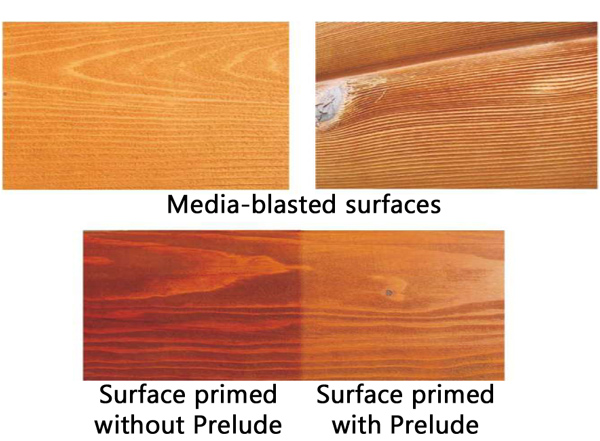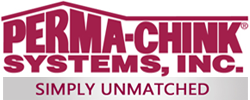Media Blasting
Although media blasting can be accomplished by a homeowner, it requires the rental of an industrial size air compressor and a Blaster Buddy unit.Media blasting not only removes the existing finish, but it also removes the top layer of wood. Media blasting can be a very aggressive procedure. In the hands of someone inexperienced with media blasting, extensive damage can be done to the surface of the wood in a very short span of time. That is why media blasting is best left to professionals who have prior experience. After media blasting, it is recommended that the walls be cleaned witha Log Wash™ solution (1 cups per gallon of clean water) to remove debris.
In general we take the position that media blasting should be considered carefully and evaluated as a secondary method rather than the preferred method of removing an existing finish. We have received calls from homeowners who are disappointed after seeing what media blasting did to their log home. They call us wanting to know what they can do to restore the logs to their original smooth surface. Unfortunately, the only way to restore the surface is labor intensive hand sanding. Media blasting followed by Osborn brushing can result in a relatively smooth surface if done by a well-trained and experienced individual. However, this is more the exception than the rule.
Some Advantages of Media Blasting
- Does an excellent job removing most paints and stains
- Fairly quick and cost effective
- Avoids water getting into the home, but dry dust and blasting media will most likely penetrate into the interior of the home
- Since the blasting media consists of either recycled crushed glass, or organic materials like corncob grit or walnut shells, there is little chance of well or water contamination
Disadvantages of Media Blasting
- Media blasting changes the surface characteristics of the wood
- In addition to roughening the surface, it increases the surface porosity
- Many people consider a media blasted surface unattractive and the only way to restore the wood to a smooth surface is with lots of hand sanding
- Prelude™ should always be used as a primer on media blasted surfaces
- Having enough blasting media on hand is critical. You don’t want to run out in the middle of a wall since it may take two or three days to have additional material shipped to your location
Chemical Stripping
Chemical stripping refers to the use of finish removers used in conjunction with a pressure washer. Chemical strippers only soften an existing finish, they must be used along with a pressure washer to remove the finish from the wall. In contrast to media blasting, chemical stripping is much more user friendly. All that is required are a general-purpose pressure washer, available at most do-it-yourself outlets or equipment rental locations, and either our S-100 or StripIt® Finish Remover. A pressure washer is much easier to handle than media blasting equipment. Although aggressive pressure washing can still do surface damage, it is usually relatively easy to repair with a light sanding or an Osborn Buffing Brush.
The main advantage of chemical stripping is that when following the proper procedures, the result is a beautiful smooth clean surface. So why do some stain manufacturers recommend media blasting over pressure washing? Media blasting significantly increases the surface area and porosity of the surface resulting in better adhesion of an inferior product. However, media blasting may result in an unattractive finish.
Some Advantages of Chemical Stripping
- Does an excellent job when correct procedures are used.
- User-friendly. Takes little expertise and no special equipment is required.
- One wall can be refinished at a time.
- Results in a more attractive surface.
Disadvantages of Chemical Stripping
- Water will get into the home.
- Need to protect plants and shrubs from chemicals.
- May take more than one application to completely remove an existing finish.
- Must thoroughly rinse any applied chemicals before applying finish.

